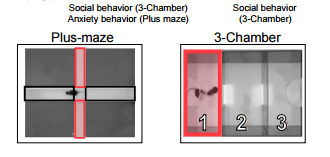Mutations in methyl-CpG–binding protein 2 (MECP2), a gene located on the X chromosome, are responsible for the neurodevelopmental disorder Rett syndrome that occurs mostly in females. MECP2 regulates gene expression through multiple mechanisms, including altering the abundance of microRNAs that control the abundance of brain-derived neurotrophic factor (BDNF). Insulin-like growth factor 1 (IGF1) is another growth factor that is produced in the brain and the periphery and can cross the blood-brain barrier. Clinical trials for safety and efficacy of IGF1 in treating Rett syndrome are under way. Studies by Castro et al. and Mellios et al. showed the efficacy of recombinant human IGF1 (rhIGF1) and a β2-adrenergic receptor agonist, clenbuterol, in ameliorating Rett-like symptoms in a mouse model of Rett syndrome. Castro et al. found that circulating IGF1 was less in male Mecp2–/y mice than in wild-type mice and that daily intraperitoneal injection of rhIGF1 into these Mecp2–/y mice, starting at postnatal day 14 (P14), increased life span, improved respiratory patterns and heart rate, and increased locomotor activity. Additionally, the treated mice had improved social behaviors and reduced behaviors associated with anxiety. Delayed maturation of synapses and neuronal circuits may contribute to Rett syndrome symptoms, and female Mecp2–/+ mice exhibited an extended period of ocular dominance plasticity, which was corrected by treatment with rhIGF1. The density of postsynaptic spines in the visual cortex and miniature excitatory postsynaptic currents were also normalized in male Mecp2–/y mice following rhIGF1 treatment. Read more: http://stke.sciencemag.org/content/7/334/ec190.abstract
